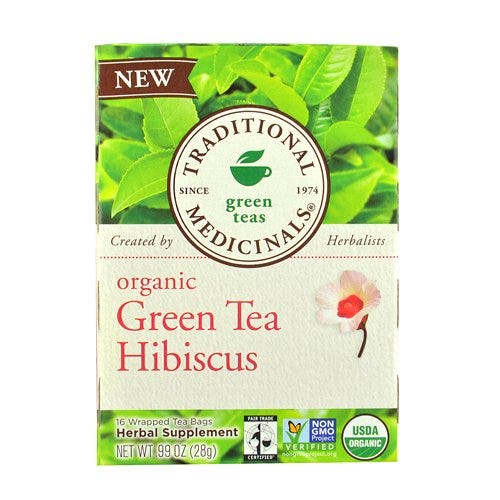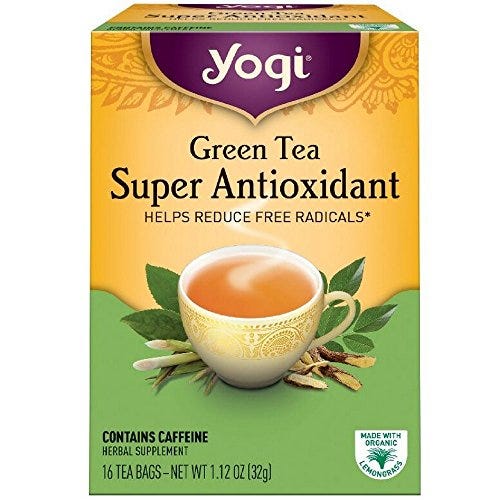
The idea that green tea might be able to help you drop a few pounds is basically alluring as hell. Think about it: It’s cheap, it tastes great, and it’s literally available everywhere.
But uh, does it even work?
Turns out, it’s a hard…maybe—and that’s only for brewed green tea (so, your fave green tea lattes and ice cream don’t count here). But before you start filling your cabinets with green tea bags, here’s what to know about green tea and weight loss, and what it can—and can’t—do.
Let’s get right to the point: Will green tea help me lose weight?
Honestly, researchers aren’t totally sure, says Melissa Majumdar, R.D., a spokesperson for the Academy of Nutrition and Dietetics and senior bariatric dietitian for Brigham and Women’s Center for Metabolic Bariatric Surgery.
Green tea’s weight-loss claims are centered around its effect on metabolism—specifically that its catechins (a type of antioxidant, also known as EGCG) and caffeine can help speed it up. “Caffeine and green tea combined show enhanced fat oxidation,” says Majumdar. That means it increases energy or metabolism—i.e., the amount of calories you burn.

One small 2018 study published in the International Journal of Sport Nutrition and Exercise Metabolism found that matcha green tea drinks can enhance exercise-induced fat oxidation in women following a 30-minute walk. But, the authors were also quick to point out that “the metabolic effects of matcha should not be overstated” when related to weight loss.
Another 2012 meta-analysis published in the Cochrane Review found that “green tea preparations appear to induce a small, statistically non-significant weight loss in overweight or obese adults.”
Basically, both of these (super small, inconclusive studies) say green tea drinks might help you lose a bit of weight—but that amount is so small you probably wouldn’t even notice it, says Majumdar.
What about other green tea products?
It depends on which ones you’re talking about, says Keri Glassman, R.D. If you’re drinking green tea infused with fruit, for example, “the benefits of green tea shouldn’t be lessened by the addition of flavors,” she says.

But when you start adding sugar or cream, things start to get murky. “That’s when you could consume more empty calories,” says Glassman—and that could negate green tea’s (very small) effect on weight loss.
Keep an eye out for what’s in the straight-up green tea you’re buying, too. “There can be a difference in the quality of tea leaves and the number of additional, unnecessary ingredients,” Glassman adds.
She recommends buying brands that use all-natural ingredients and have no artificial preservatives, such as Traditional Medicinals or Yogi.
And when it comes to brewing your own tea, fresher is better. “If using loose tea or tea bags, make sure to [drink up] within six months.” Otherwise, the tea will lose some of its antioxidant powers, says Glassman.
So, what’s the verdict? Should I drink green tea for weight loss?
There’s definitely no harm in drinking green tea. (I mean, it’s clearly healthier than downing soda every day.)

The only thing you want to keep an eye on is caffeine intake. A standard eight-ounce cup of green tea has about 25 milligrams of caffeine, and the FDA recommends consuming no more than 400 milligrams of caffeine per day.
But, if you’re hoping for a weight-loss magic bullet—green tea doesn’t fit the bill. “Is it going to help with weight loss? Probably not much,” says Majumdar. “But it can be included in a general healthy diet, and safely be included in a weight-loss plan.”
The bottom line: If you’re looking to add a healthy, calorie-free drink to your weight-loss plan—go ahead and grab some green tea. But don’t significant results from that alone.
Source: Read Full Article